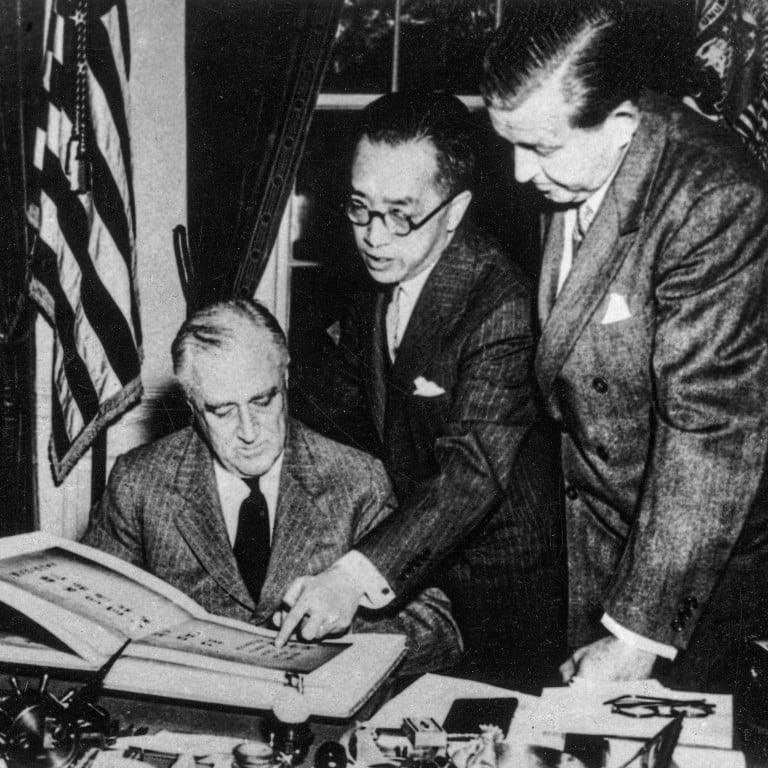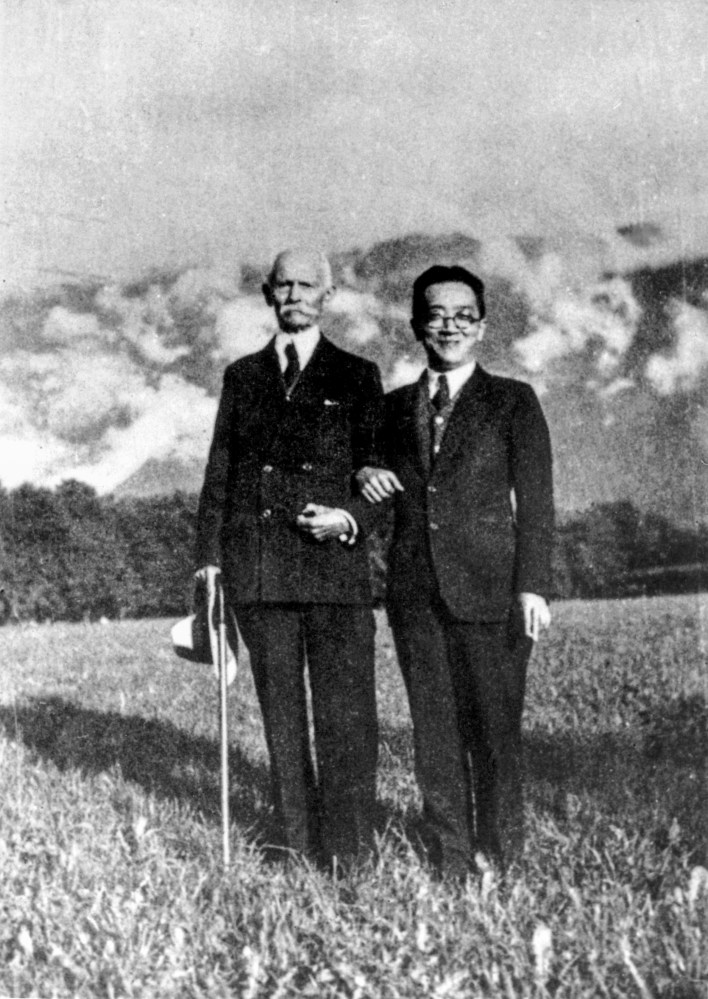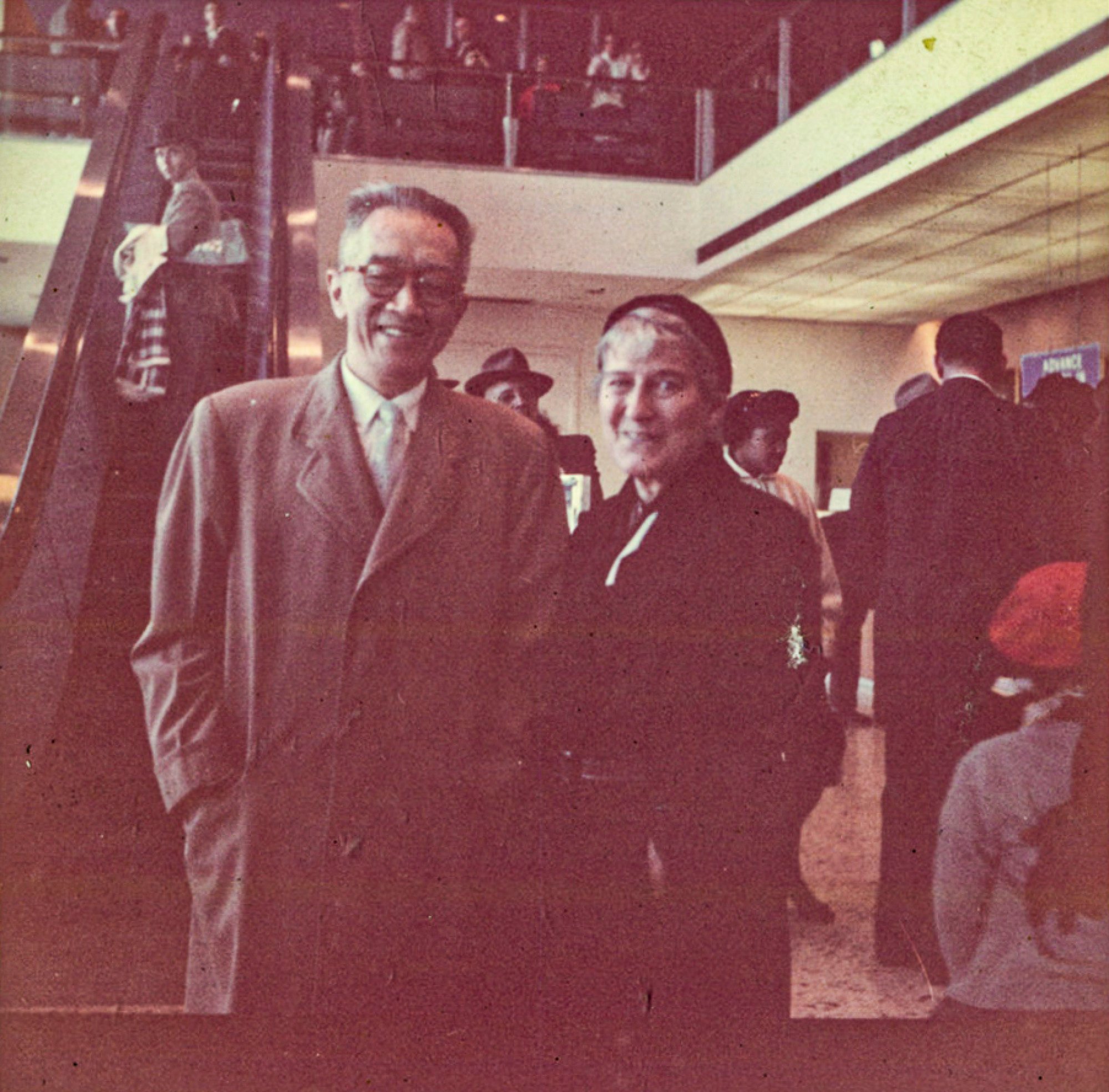
The remarkable life of intellectual and language reformer Hu Shih helped shape China in the 20th century
- A new book highlights Hu’s legacy, from his World War II-era diplomacy to championing literature for ordinary Chinese, his humility and charisma
- Author says biography reminds young people that between 1911 and 1949 China had a rare period of liberty thanks to outstanding intellectuals such as Hu
This month marks the 130th anniversary of the birth of a Chinese intellectual and diplomat who played a key role in on of the major turning points in the Second World War – an event being commemorated in a new book.
“Hu was not only an excellent diplomat working to save his country, but also a versatile intellectual with a strong sense of social responsibility and liberalism that should always be commemorated,” O’Neill told the South China Morning Post.
“When I asked university students in Hong Kong about him, they told me his name is familiar to them, but they knew little about him. When I asked foreigners, they responded: ‘who is Hu?’ That really makes me disappointed”.

O’Neill’s book, China’s Great Liberal of The 20th Century – Hu Shih Founder of Modern Chinese Language was expected to be published this month in both English and Chinese to coincide with the 130th anniversary of Hu’s birth, although a publishing date has not been set.
Qian Liqun, a retired professor of Chinese literature at Peking University, said Hu’s name had been taboo for decades in mainland China because the liberal-democratic foundation of his thoughts were not in keeping with establishment thinking in China.
However, a new television series to mark the 100th anniversary of the founding of the Chinese Communist Party shed Hu in a new, more positive light, Qian said, referring to the popular 43-episode The Awakening Age about China’s revolutionary history.
“The state-produced TV dramas recorded high viewing rates on many platforms, and started inspiring young people to know more about Hu,” Qian said.
Hu was born in Shanghai on December 17, 1891 and became one of the more than 100 Chinese students sent by the Qing government to study in the US in 1910. He was greatly influenced by his professor John Dewey, a prominent American philosopher and educational reformer, for his profound belief in democracy and the advocacy of social reforms.

Hu went on to become one of the youngest professors at Peking University and worked shoulder to shoulder with Chen Duxiu, who later became the first party chief of the Chinese Communist Party in the New Cultural Movement between 1910 and 1920, promoting vernacular literature.
Writer O’Neill was born in London, the grandson of a Presbyterian missionary who worked in China’s northeastern Liaoning province from 1872-1942.
After a stint working at RTHK in 1978 to 1981, O’Neill – inspired by his grandfather’s mission – went to Taiwan in 1981 to study Mandarin.
China’s 1911 Xinhai revolution and its modern-day legacy
His subject, Hu, also spent time on the island and was president of Taiwan’s Academia Sinica for four years until his death in 1962.
“My Chinese teachers recommended me to read Hu’s literature, saying he was one of the key leaders to promote the Chinese New Culture Movement, especially the use of vernacular Chinese instead of classical Chinese. This reform has enabled hundreds of millions of Chinese and foreigners like me to learn Mandarin as an easier and more vivacious language,” he said.
“The more I learned about Hu, the more I admire him. I decided to write a book about him from the gweilo’s angle,” O’Neill said, referring to Hongkongers’ nickname for white foreigners.
Unlike other experts’ publications that focus on studying Hu’s essays and philosophies, O’Neill said his book would share Hu’s humility and his personal charisma, especially his friendship with Roosevelt and other foreign counterparts and friends, as well as his romantic stories.

O’Neill said he hoped his book would remind young people that between 1911 and 1949 China had a rare period of liberty on the back of outstanding intellectuals such as Hu.
“After the 1911 revolution, people did not know what kind of republic they wanted to create. This gave the space to Hu and others to propose many ideas and have an enormous influence over society,” he said.
2 Chinese university teachers punished for contentious Sino-Japanese comments
Professor Yuan Weishi, a retired historian at Sun Yat-sen University in Guangzhou, said Hu was well-known for his relentless criticism of the former ROC president Chiang Kai-shek. Yuan said Hu’s bravery and spirit was inherited by today’s Chinese intellectuals with the help of the internet and technology.
“Some people may say today’s Chinese state media outlets are full of propaganda writings, but those publications are not real academic research recognised by the intellectual community amid the liberal influence,” Yuan said.
“Chinese intellectuals have chosen to publish their thoughtful studies on social media platforms, which see the impact increasing day after day, pushing decision makers to dare not turn a blind eye to their criticisms.”


